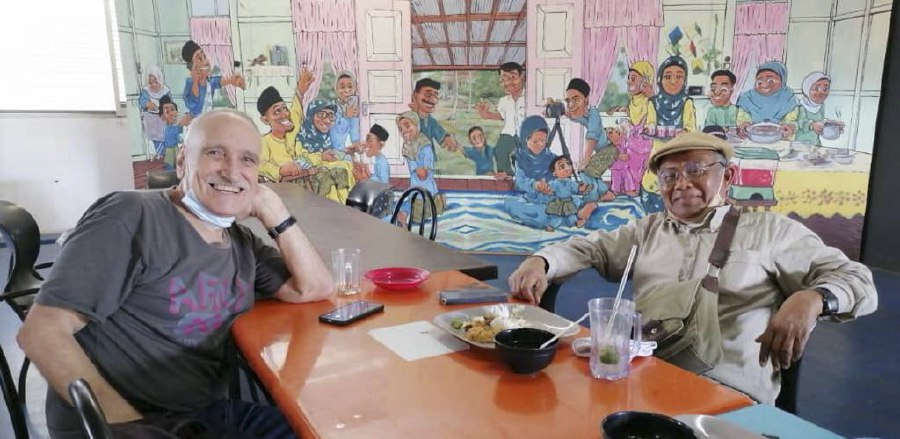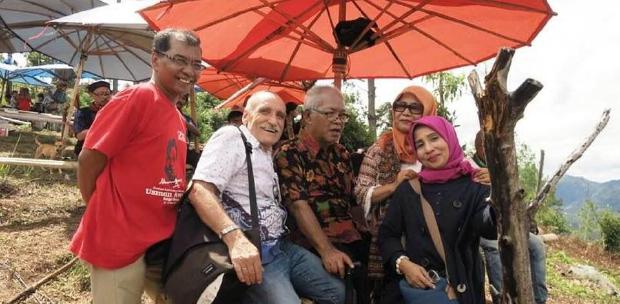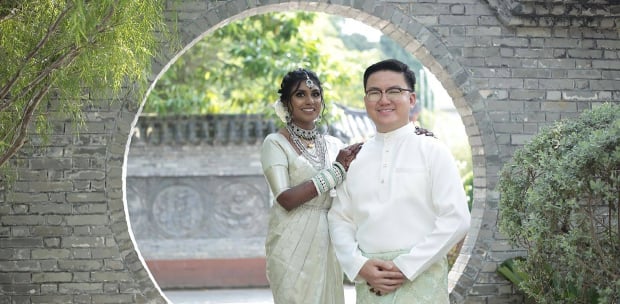ON May 22 last year, at a Malay language workshop in Kuala Lumpur, I met writer and artist Zakaria Ali from Penang.
We exchanged books. I gave him the "Literary Lexicon of Malaysia", published in 2022 in Moscow, and he gave me his new story in English, "The Stockade".
I brought the book to Moscow, but didn't read it right away. We kept in touch through correspondence via the Internet. We also began sending each other letters and photographs, exchanging opinions on various issues.
This year, while in Kuala Lumpur, we met again, this time at the National Art Gallery. He came from Penang to discuss the issue of organising his personal exhibition. My stay in Kuala Lumpur was marked by another important event: I was able to admire the Rafflesia in the jungle of Kelantan.
Returning to Moscow, I decided to finally read the book given to me by Zakaria in 2022.
And what a coincidence! The events in this book revolved around the Rafflesia. This huge flower, the largest flower in the world, is essentially the main character of the book.
The protagonists of the story were looking for the flower in the jungle.
I like the book. Good language, a cleverly twisted, albeit somewhat far-fetched plot, plus well-written characters.
And most importantly, the story is permeated with the author's concern about protecting the environment.
Through his aboriginal hero Sukuni, Zakaria talks about the need to preserve the unique nature of Malaysia, emphasising that nature is a living organism just like people, and that the connection between us and nature is important for the survival of humanity.
These ideas echo the teachings of the Russian scientist Vladimir Vernadsky, according to which man is an integral part of the biosphere and interacts with it.
It extends its life-streams into nature and, at the same time, receives from it the substances and energy necessary for life. People and nature form an inextricable link, and a good environment is the basis for the health and wellbeing of humanity.
Zakaria is a writer, painter and translator. He graduated from Malay and English schools, and in 1972 from Southwestern University in Georgetown (Texas, USA).
In 1991, he defended his doctoral thesis at Harvard University (Massachusetts, USA). Since 1993, he has been a lecturer at Universiti Sains Malaysia. He writes poetry, stories, novels, and essays in Malay and English.
He translated poems by the Mexican poet Octavio Paz (1972) and stories by Jorge Luis Borges (2011) from Spanish into Malay, as well as works by Malay writers into English.
He is also the author of a collection of poetry including "Percikan" (2003), "White Elephant: A collection of four stories in Malay and English" (2006) and "The Secret Keeper and Other Stories" (2019), the novels "Empangan" (1991 and "Villa Maya" (1997), as well as collections of essays, "Seni dan Seniman: Esei-esei Halus" (1989), "Angsana — Essays on Modern Malay Literature" (2003).
Zakaria is also a Laureate of the Main Literary Prize of Malaysia (1991/1992). I'd like to think that our meeting was not accidental, like everything in this world.
We live in different countries far from each other, but we are connected by common interests, by our love of literature and art, and a thread of friendship.
Pogadaev, writing from Russia, is a former lecturer at University of Malaya





